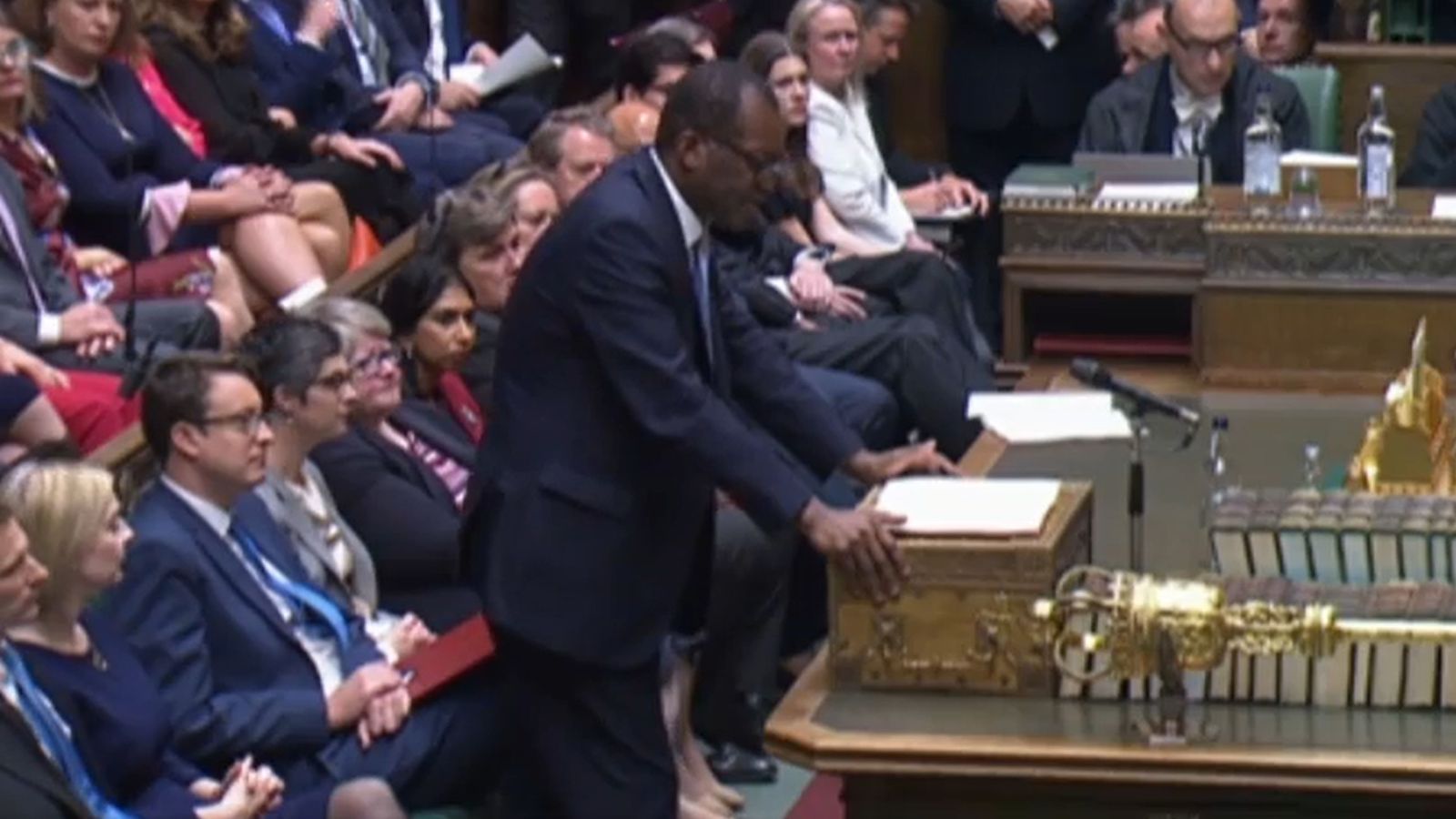What was in the mini-budget and what has been scrapped?

Just over three weeks ago, then-chancellor Kwasi Kwarteng unveiled his tax-cutting mini-budget to MPs which caused economic turmoil in the UK.
Following a dramatic U-turn on a promise to abolish the 45% higher rate of income tax after backlash from the government’s own Conservative MPs earlier this month, Mr Kwarteng has now been sacked – and many of the other pledges in the mini-budget have been torn up.
On Friday, the government scrapped its decision to axe the rise in corporation tax to 25% next year.
Addressing the nation in a statement on Monday morning, newly appointed chancellor Jeremy Hunt confirmed that most of the other mini-budget proposals have also now been thrown in the bin as Prime Minister Liz Truss seeks to hold on to her premiership.
Here is a breakdown of what was in the government’s mini-budget at the end of September and what has changed:
Income tax:
What was pledged?
• The government pledged that the 45% higher rate of income tax would be abolished.
Advertisement
• There was a promise to reduce the basic rate of income tax to 19p in the pound by April 2023, meaning 31 million people would be better off by an average of £170 a year.
What has changed?
• The government rowed back on its decision to scrap the highest rate of income tax earlier this month.
• Mr Hunt said the basic rate of income tax would now “indefinitely” stay at 20p until economic conditions allowed a reduction.
“It is a deeply held Conservative value – a value that I share – that people should keep more of the money that they earn,” the new chancellor said.
“But at a time when markets are rightly demanding commitments to sustainable public finances, it is not right to borrow to fund this tax cut.”
Corporation tax
Please use Chrome browser for a more accessible video player
1:37
Truss confirms corporation tax U-turn
What was pledged?
• The government said it would cancel a UK-wide rise in corporation tax which was due to increase from 19% to 25% in April.
What has changed?
• Ms Truss confirmed in a brief press conference on Friday that she was dropping this flagship policy of her leadership campaign and that corporation tax will go up from 19% to 25% in April after all.
Energy package
What was pledged?
• The government said household bills would be cut by an expected £1,000 this year with aid from the energy price guarantee and £400 grant. The energy price guarantee had been due to cap prices for two years.
What has changed?
• Mr Hunt confirmed the energy price guarantee will now end in April after which time the government will look to target help on those most in need.
IR35 rules
What was pledged?
• The government promised to “simplify” IR35 rules – the rules which govern off-payroll working. It promised to change the regulations so pensions funds can increase UK investments.
What has changed?
• Mr Hunt confirmed the government will now abandon these proposed IR35 changes.
Alcohol duty
What was pledged?
• The government said in the mini-budget that planned increases in the duties on beer, for cider, for wine, and for spirits would be cancelled.
What has changed?
• Mr Hunt confirmed this will now no longer be the case, with the price of beer, cider, wine and sprits soon rising.
Dividend tax change
Please use Chrome browser for a more accessible video player
3:05
Truss braces for tumultuous week
What was pledged?
• The government announced in the mini-budget that from 6 April 2023, the additional rate applying to dividend income would be abolished and the 1.25% rise in the dividend rates, initially brought into force in April this year, would be reversed.
What has changed?
• Mr Hunt said the government will no longer reverse the 1.25% rise in the dividend rates.
VAT-free shopping
What was pledged?
• The government pledged VAT-free shopping for overseas visitors.
What has changed?
• Mr Hunt said this policy has now been scrapped.
Stamp duty
What was pledged?
• The government promised to cut stamp duty which is paid when people buy a property in England and Northern Ireland. It said no stamp duty would be paid on the first £250,000 of any property and no stamp duty on the first £425,000 for first-time buyers.
What has changed?
• Mr Hunt confirmed this is one of very few policies in the controversial mini-budget which will remain.
National Insurance
Please use Chrome browser for a more accessible video player
5:01
Truss would ‘cut national insurance’
What was pledged?
• The government said it would reverse the recent rise in National Insurance from 6 November. Workers and employers have paid an extra 1.25% since April 2022.
What has changed?
• Mr Hunt confirmed that, like stamp duty, this policy has survived the mini-budget cull.
Bankers’ bonuses
What was pledged?
• The government announced it was scrapping rules which limit bankers’ bonuses.
What has changed?
• Mr Hunt did not mention bankers’ bonuses in his statement.